第30章 CHAPTER VIII.(5)
"I see, sir; my wife and children. Thank you, sir; thank you."
Pomander stared; Mrs. Woffington laughed.
Now it was Vane's turn.
"Let me have a copy of verses from your pen. I shall have five pounds at your disposal for them."
"The world has found me out!" thought Triplet, blinded by his vanity.--"The subject, sir?"
"No matter," said Vane--"no matter."
"Oh, of course it does not matter to me," said Triplet, with some _hauteur,_ and assuming poetic omnipotence. "Only, when one knows the subject, one can sometimes make the verses apply better."
"Write then, since you are so confident, upon Mrs. Woffington."
"Ah! that is a subject! They shall be ready in an hour!" cried Trip, in whose imagination Parnassus was a raised counter. He had in a teacup some lines on Venus and Mars which he could not but feel would fit Thalia and Croesus, or Genius and Envy, equally well. "In one hour, sir," said Triplet, "the article shall be executed, and delivered at your house."
Mrs. Woffington called Vane to her, with an engaging smile. A month ago he would have hoped she would not have penetrated him and Sir Charles; but he knew her better now. He came trembling.
"Look me in the face, Mr. Vane," said she, gently, but firmly.
"I cannot!" said he. "How can I ever look you in the face again?"
"Ah! you disarm me! But I must strike you, or this will never end. Did I not promise that, when you had earned my _if_ esteem, I would tell you--what no mortal knows--Ernest, my whole story? I delay the confession. It will cost me so many blushes, so many tears! And yet I hope, if you knew all, you would pity and forgive me. Meantime, did I ever tell you a falsehood?"
"Oh no!"
"Why doubt me then, when I tell you that I hold all your sex cheap but you? Why suspect me of Heaven knows what, at the dictation of a heartless, brainless fop--on the word of a known liar, like the world?"
Black lightning flashed from her glorious eyes as she administered this royal rebuke. Vane felt what a poor creature he was, and his face showed such burning shame and contrition, that he obtained his pardon without speaking.
"There," said she, kindly, "do not let us torment one another. I forgive you. Let me make you happy, Ernest. Is that a great favor to ask? I can make you happier than your brightest dream of happiness, if you will let yourself be happy."
They rejoined the others; but Vane turned his back on Pomander, and would not look at him.
"Sir Charles," said Mrs. Woffington gayly; for she scorned to admit the fine gentleman to the rank of a permanent enemy, "you will be of our party, I trust, at dinner?"
"Why, no, madam; I fear I cannot give myself that pleasure to-day." Sir Charles did not choose to swell the triumph. "Mr. Vane, good day!" said he, rather dryly. "Mr. Triplet--madam--your most obedient!" and, self-possessed at top, but at bottom crestfallen, he bowed himself away.
Sir Charles, however, on descending the stair and gaining the street, caught sight of a horseman, riding uncertainly about, and making his horse curvet, to attract attention.
He soon recognized one of his own horses, and upon it the servant he had left behind to dog that poor innocent country lady. The servant sprang off his horse and touched his hat. He informed his master that he had kept with the carriage until ten o'clock this morning, when he had ridden away from it at Barnet, having duly pumped the servants as opportunity offered.
"Who is she?" cried Sir Charles.
"Wife of a Cheshire squire, Sir Charles," was the reply.
"His name? Whither goes she in town?"
"Her name is Mrs. Vane, Sir Charles. She is going to her husband."
"Curious!" cried Sir Charles. "I wish she had no husband. No! I wish she came from Shropshire," and he chuckled at the notion.
"If you please, Sir Charles," said the man, "is not Willoughby in Cheshire?"
"No," cried his master; "it is in Shropshire. What! eh! Five guineas for you if that lady comes from Willoughby in Shropshire.
"That is where she comes from then, Sir Charles, and she is going to Bloomsbury Square."
"How long have they been married?"
"Not more than twelve months, Sir Charles."
Pomander gave the man ten guineas instead of five on the spot.
Reader, it was too true! Mr. Vane--the good, the decent, the churchgoer--Mr. Vane, whom Mrs. Woffington had selected to improve her morals--Mr. Vane was a married man!